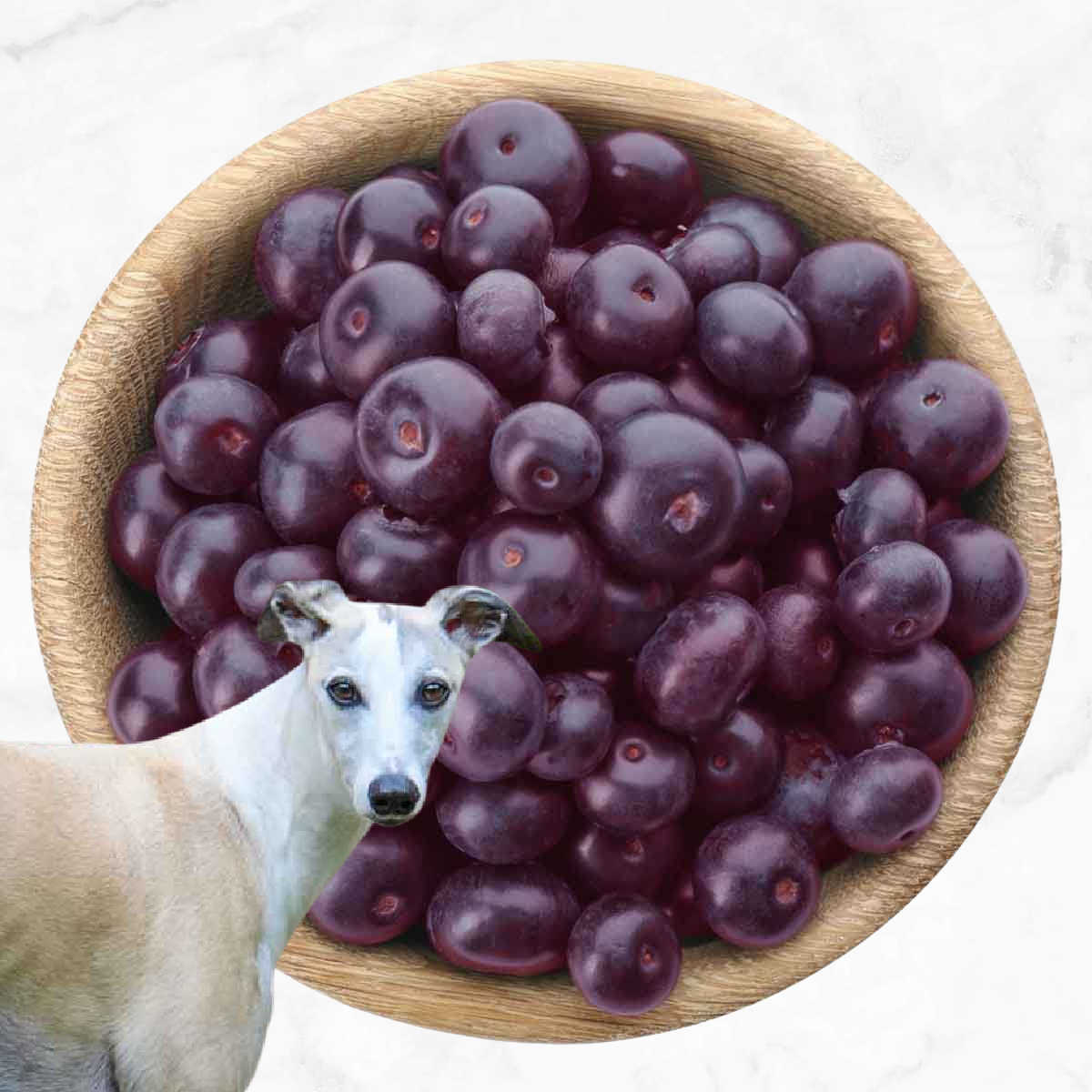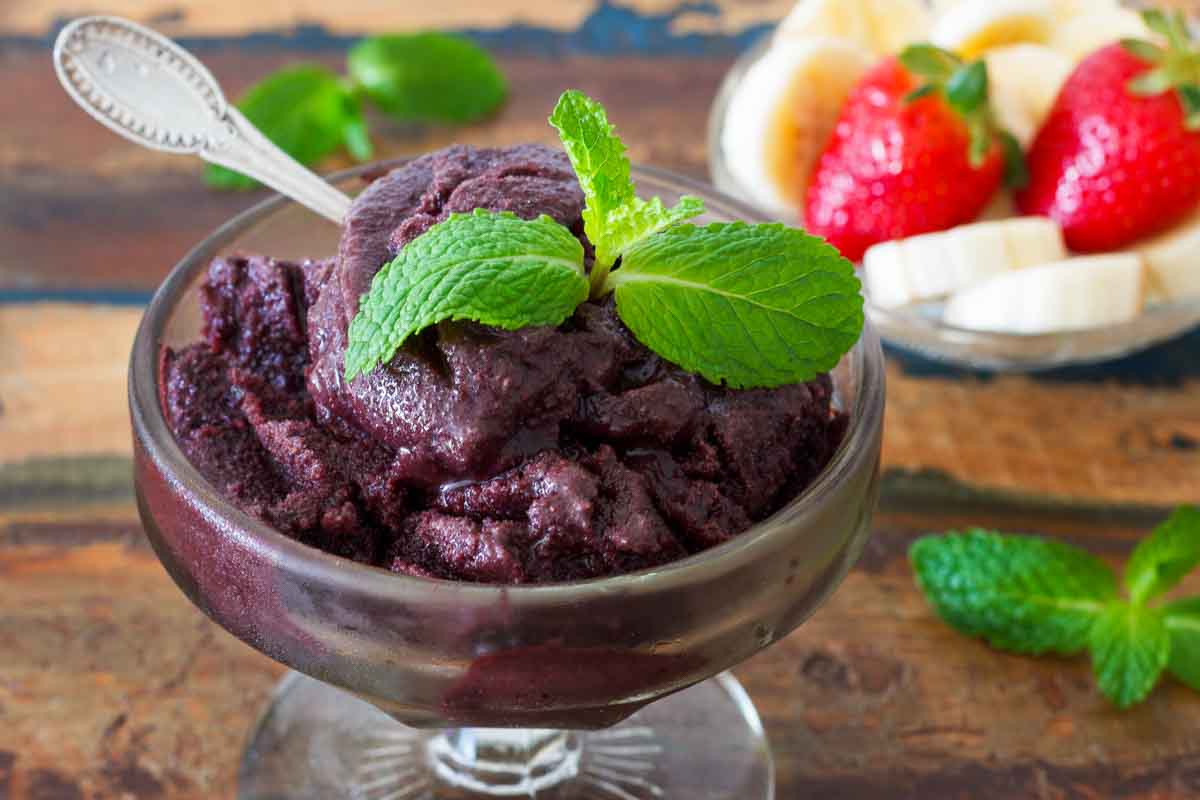Have you ever wondered if dogs can eat acai? With the rising popularity of this superfood among humans, it’s important to know whether it’s safe for our furry friends. In this guide, we will explore the potential risks and benefits of feeding acai to dogs.
What is Acai?
Before we dive into the details, let’s first understand what acai is. Acai berries are small, dark-colored fruits that resemble blueberries. They grow on acai palm trees in the Amazon region of South America. Due to their short shelf-life, acai berries are typically consumed in frozen or dried powder form. Many people love making acai smoothies because of the fruit’s high nutritional content, including essential nutrients and healthy fats. Some even claim that acai juice can help alleviate symptoms of urinary tract infections.
Health Benefits of Acai Berries
Acai berries are packed with nutrients and are known for their antioxidant properties. They are rich in fatty acids, which promote satiety, and vitamin C, which strengthens the immune system. However, it’s important not to confuse acai berries with other exotic fruits like goji berries.
Goji Berries Vs Acai Berries
While goji berries are safe for dogs to consume, acai berries pose a potential risk. According to the National Animal Supplement Council (NASC), acai berries are rich in theobromine, a compound that can be toxic to dogs. The NASC advises pet owners to keep their dogs away from acai berries. It’s always best to consult with a trusted veterinarian regarding any dietary concerns for your furry friend.
Can Dogs Have Acai?
In short, it’s crucial to exercise caution when feeding acai to dogs. Large quantities of acai can be dangerous for dogs due to the presence of theobromine, ficin, and ficusin. These compounds can potentially cause allergic reactions or damage proteins in a dog’s body. Overconsumption of acai may lead to an upset stomach and subsequent weight loss.
Potential Side Effects of Acai Berries in Dogs
Acai berries contain the same toxic ingredient, theobromine, found in dark chocolate, which can lead to chocolate poisoning in dogs. If your dog ingests excessive amounts of acai or chocolate, watch out for symptoms such as excessive urination, increased thirst, diarrhea, vomiting, muscle tremors, elevated heart rate, and restlessness. In severe cases, your dog may experience haematemesis, polydipsia, hyperexcitability, hyperirritability, ataxia, muscle twitching, decreased cognitive function, and even seizures. It’s crucial to seek immediate medical attention if your dog exhibits any of these symptoms.
Is Acai Safe For Dogs?
No, acai is not safe for dogs. Just like dark chocolate, acai contains theobromine, which is toxic to dogs. To ensure your dog’s safety, it’s best to keep them away from acai berries altogether.
Can Dogs Eat Acai Bowls?
Acai bowls, typically made with various fruits including acai, should be avoided in large quantities when it comes to your furry companion. If the acai bowls contain artificial sweeteners, it’s especially important to keep them away from your dog. While small amounts of acai pulp might not be harmful, it’s best to err on the side of caution and avoid giving it to your dog.
Can Dogs Eat Acai Sorbet?
Acai sorbet, a colorful and popular food product made with acai, should also be consumed sparingly by dogs. Due to its high sugar content, excessive consumption can lead to weight gain and heart disease.
Can Dogs Eat Acai Smoothie?
It’s not recommended to feed your dog an acai smoothie as a treat. While you may want to share a nutritious snack with your furry friend, it’s important to introduce new foods gradually and monitor for any signs of allergic reactions. Foods high in sugar, such as acai juice, can contribute to weight gain, cardiovascular disease, and diabetes in dogs.
Can Dogs Eat Acai Powder?
While a small amount of acai powder may not cause harm to your pet, it’s generally not advisable to add it to your dog’s food. Even in small quantities, acai powder can potentially upset your dog’s stomach.
Final Thoughts
In conclusion, acai is not recommended for dogs, even as an occasional treat. It’s best to avoid feeding your dog acai berries altogether.
Frequently Asked Questions
Q: Can dogs eat goji berries?
A: Yes, goji berries are safe for dogs to eat. Unlike acai berries, goji berries do not pose a risk to dogs.
Q: What are the potential symptoms of acai berry poisoning in dogs?
A: Excessive urination, increased thirst, diarrhea, vomiting, muscle tremors, elevated heart rate, restlessness, haematemesis, polydipsia, hyperexcitability, hyperirritability, ataxia, muscle twitching, and decreased cognitive function are some of the potential symptoms of acai berry poisoning in dogs.
Q: What should I do if my dog consumes a large amount of acai berries or acai products?
A: If your dog ingests a significant amount of acai berries or acai products, it is important to seek immediate veterinary attention.
Q: Are there any fruits that are safe for dogs to eat?
A: Yes, there are several fruits that are safe and healthy for dogs to consume. However, it’s always best to check with your veterinarian before introducing new foods into your dog’s diet.
Conclusion
While acai berries have gained popularity as a superfood for humans, it’s important to remember that they can be harmful to dogs. The presence of theobromine in acai makes it toxic to our furry friends. To ensure the well-being of your dog, it’s best to avoid feeding them acai in any form. For more information on what dogs can and cannot eat, visit Pawsoha and stay informed to keep your dog safe and healthy.



